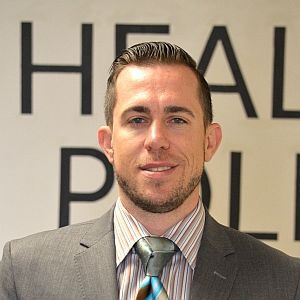Some information may be outdated.
After seven years campaigning to repeal and replace the Affordable Care Act (ACA), combined now with party control of the White House, Senate and House of Representatives for the past six months, the GOP still cannot agree on a health-care replacement plan, and each successive plan it puts forward is seemingly less popular to Americans and health-care stakeholders than the previous.
A recent poll by Fox News showed support for the Senate’s health-care reform bill (BCRA) at just 27 percent – and strong support at just 11 percent – while 52 percent of Americans approved of the ACA. It’s not just the public that does not like the BCRA. The health industry and health-care stakeholders, including the American Medical Association, the American Hospital Association, American Health Insurance Plans and AARP – to name just a few – made clear that they oppose the BCRA.
Anyone who has interacted with the American health-care system knows that it is extremely complex and even something as trivial as deciphering a health-care bill can be an arduous and complicated task. With the health-care legislation debate being a primary focus in Washington D.C., there is a constant stream of news, reports, studies and even tweets, talking about the many interwoven issues. Things seem to change on an almost daily basis. To this end, there are two simple questions to ask yourself to establish a baseline of where we are at with regard to a proposed health-care plan.
First, how many people will lose access to health insurance?
Second, how much funding will be cut from Medicaid, and who will those cuts hurt?
GOP senators are currently looking at two plans: The first is the Better Care Reconciliation Act of 2017 (BCRA); the second is a “repeal only” bill from 2015.
Under the BCRA, the Congressional Budget Office (CBO), found that it would result in 22 million fewer Americans having health insurance by 2026, whereas under the “repeal only” bill, the CBO found that 32 million fewer Americans would have health insurance by 2026. Clearly neither GOP plan helps more Americans or more Utahns access health care. Alternatively, under the ACA, the uninsured rate in Utah declined from 14 percent in 2013 to 10.5 percent in 2015. Additionally, a recent study by the Urban Institute found that under the BCRA, 586,000 nonelderly Utahns would be uninsured in 2022 as compared to 341,000 Utahns being uninsured in 2022 under the ACA.
The BCRA also proposes a major overhaul of Medicaid funding by forcing states to accept per capita caps on their Medicaid programs. In other words, the federal government will cap how much funding it will provide to a state for its Medicaid program. Because of the strictures on funding proposed by the BCRA, it will effectively be a drastic funding cut to the states, saving the federal government money. It does so by forcing the states to assume the additional costs and risks all for the benefit of the federal government. Medicaid is a program designed to help the most vulnerable Americans have access to health care. The vast majority of those on Medicaid are pregnant women, disabled people, seniors and children. Almost half of all Medicaid beneficiaries are children. So, because the BCRA will reduce Medicaid funding by $772 billion by 2026, children could be the hardest hit.
The constant changing of proposed health-care legislation, drafted in secret backroom meetings by a small group of GOP senators, has brought us to this point: Republican senators were set to vote this week on a health-care bill that they do not know the details of, cannot reach a consensus on within their own party, and will strip health coverage away from tens of millions of Americans.
All this boils down to a few takeaways: (1) The GOP should abandon its goal to repeal the ACA and instead focus on correcting issues within the current health law on a bipartisan basis; (2) our leaders should work together to guarantee that all Americans have meaningful access to quality and affordable health-care coverage; and (3) the GOP should move on to the myriad other national issues that need to be addressed by our elected officials rather than wasting its – and the American people’s – time and resources on health-care legislation that the American people do not want.
Micah Vorwaller, J.D., is a health policy analyst and legislative counsel with the Utah Health Policy Project, a nonpartisan, nonprofit health-care policy think tank and enrollment organization in Salt Lake City.
Appreciate the coverage? Help keep local news alive.
Chip in to support the Moab Sun News.



